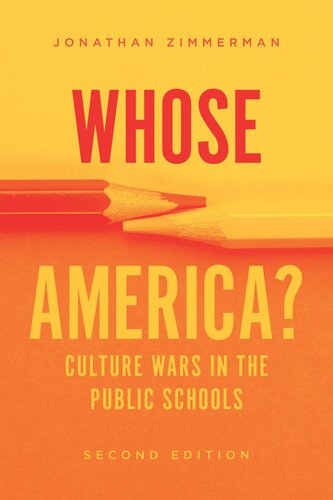

Most ebook files are in PDF format, so you can easily read them using various software such as Foxit Reader or directly on the Google Chrome browser.
Some ebook files are released by publishers in other formats such as .awz, .mobi, .epub, .fb2, etc. You may need to install specific software to read these formats on mobile/PC, such as Calibre.
Please read the tutorial at this link: https://ebookbell.com/faq
We offer FREE conversion to the popular formats you request; however, this may take some time. Therefore, right after payment, please email us, and we will try to provide the service as quickly as possible.
For some exceptional file formats or broken links (if any), please refrain from opening any disputes. Instead, email us first, and we will try to assist within a maximum of 6 hours.
EbookBell Team

4.8
74 reviewsIn this expanded edition of his 2002 book, Zimmerman surveys how battles over public education have become conflicts at the heart of American national identity.
Critical Race Theory. The 1619 Project. Mask mandates. As the headlines remind us, American public education is still wracked by culture wars. But these conflicts have shifted sharply over the past two decades, from religious issues to national ones, marking larger changes in the ways that Americans imagine themselves. From the Scopes Trial over evolution in the 1920s through battles over school prayer in the ’80s and ’90s, the twentieth century’s bitterest school battles were tied to questions of faith. By contrast, America forged truces over history instruction by adding new groups to a shared patriotic story of freedom and progress. Jonathan Zimmerman forecast as much in his 2002 book, Whose America? Twenty years later, though, Zimmerman has reconsidered: arguments over what American history is, what it means, and how it is taught have exploded with special force in recent years, whether over Confederate monuments, the naming of buildings and institutions, or the very definition of patriotism. In this substantially expanded new edition, Zimmerman meditates on the history of the culture wars in the classroom—and on what our inability to find common ground might mean for our future.